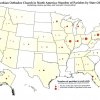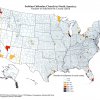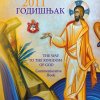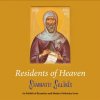Maps of Serbian Orthodox Church in North America
by Alexei D. Krindatch, the research coordinator with the Assembly of Canonical Orthodox Bishops of North and Central America
- Serbian Orthodox Church in North America: Number of Parishes by State (2010) (including mission parishes and monastic communites)
- Serbian Orthodox Church in North America: Number of Adherents by County (2010)
Further information:
- Spasovic, Stanimir. The History of the Serbian Orthodox Church in America and Canada. 1941-1991. Belgrade: Printing House of the Serbian Patriarchate, 1998.
- Vukovic, Bishop Sava. History of the Serbian Orthodox Church in America and Canada, 1891-1941. Kragujevac, Serbia: Kalenic Press, 1998.






